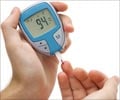The hazards of heart ailments, quite common in diabetics, can be checked by incorporating exercise regime in daily routine. Largely, exercises are found to be effective in harnessing sugar levels.

Twenty inactive subjects with type-II diabetes were enrolled in the study (mean age 53.5 years). Every individual’s baseline HbA1c, serum glucose levels, heart rate and blood pressure were measured before beginning the study. They were asked to opt either for treadmill or isometric exercises and were categorized according to age, sex and waist circumference. The entire regime lasted for 10 weeks and they met thrice a week.
An important finding of the study was marked mitigation in the HbA1c values and serum glucose levels pre and post exercise, though no apparent alterations were seen in the blood pressure and heart rate in the two groups, after intervening for 10 weeks.
In the group following resistance exercises, significant variations in blood glucose levels (p<0.001) between pre and post exercise routine were observed. The mean HbA1c (p<0.001) readings also showed remarkable improved results, in pre and post exercise regimes. In the group following resistance exercise regime, the decrease was more prominent as their HbA1c considerably reduced in comparison to the treadmill one (p<0.006) within 10 weeks.
The study concluded in establishing the usefulness of resistance exercises as compared to treadmill work outs in achieving improved glycaemic controls, in individuals with type-II diabetes for 10 weeks.
Source:














